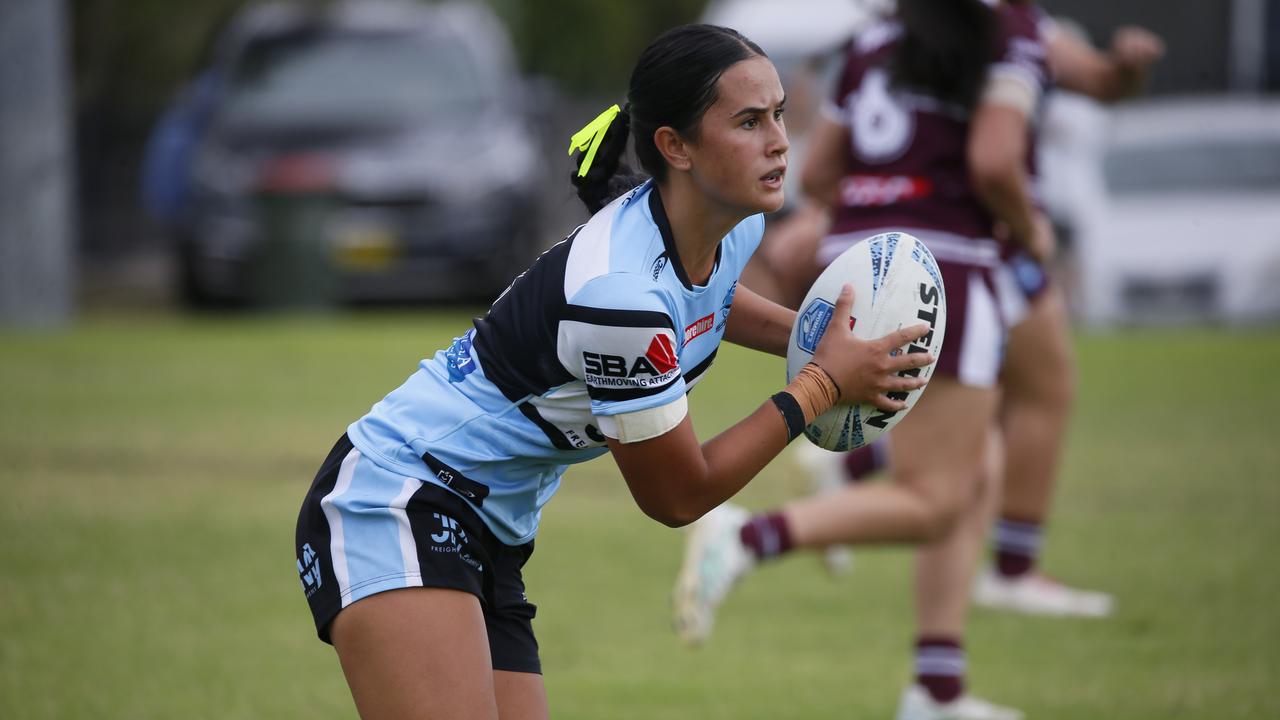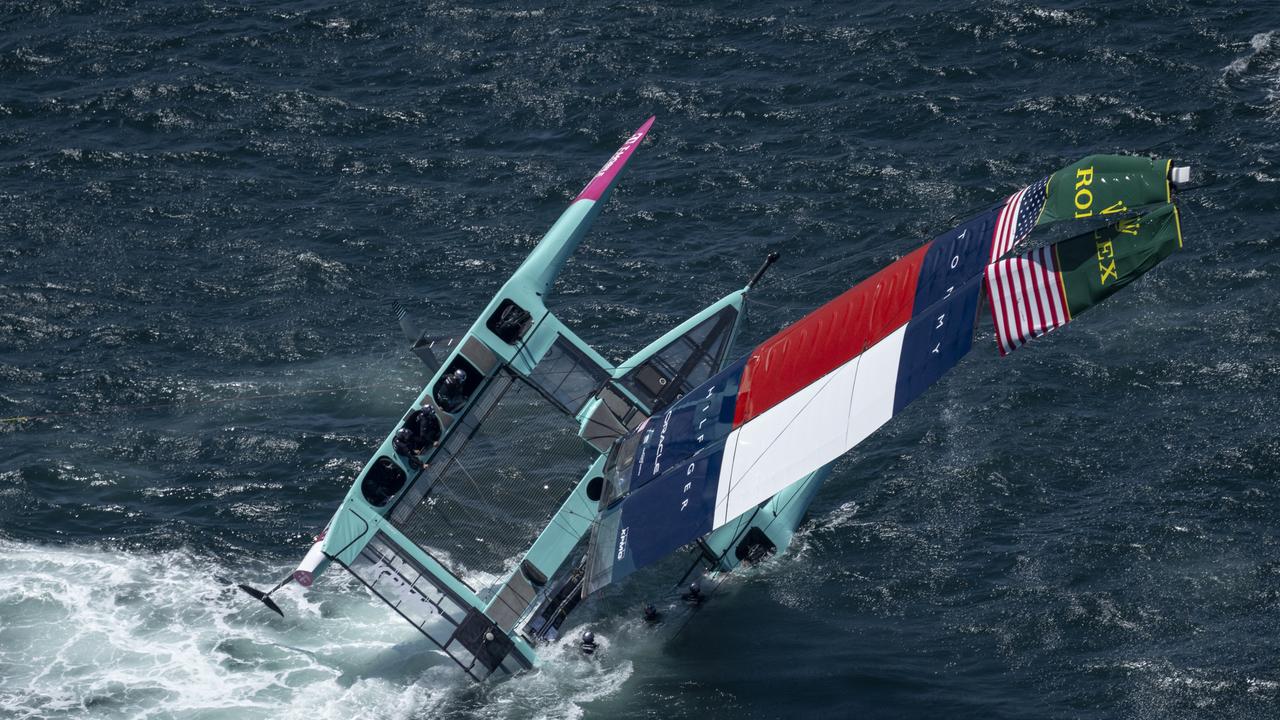Bush footy to the bright lights: The Panthers and Broncos players who started in country NSW
Before they were lining up in NRL grand finals, they cut their teeth playing bush footy. Find out how Penrith’s and Brisbane’s country stars made it to the big stage.
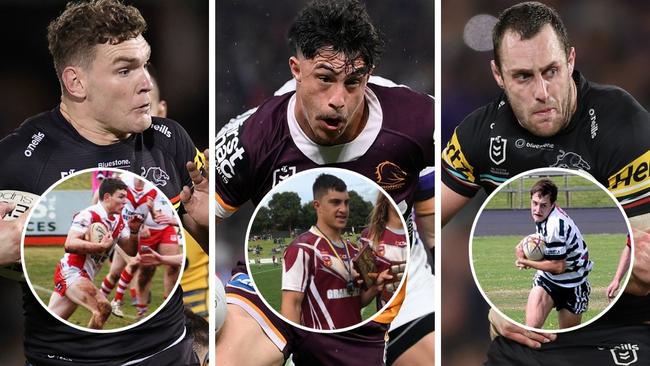
Local Sport
Don't miss out on the headlines from Local Sport. Followed categories will be added to My News.
Places like Dorrigo, Temora and Dubbo are a long way from the bright lights of Accor Stadium.
But it was in some of these country towns across NSW that some of the superstars lining up in this weekend’s NRL grand final first picked up a footy.
Cutting their teeth in local bush footy comps before eventually moving to the big smoke for a crack at the big time, these country stars have unique stories to the top.
Ahead of the grand final, we’ve spoken to former coaches and mentors of Penrith’s and Brisbane’s country stars to see how they started out and what they were like before they made the NRL.
Check out their stories below.
Liam Martin (Temora Dragons)
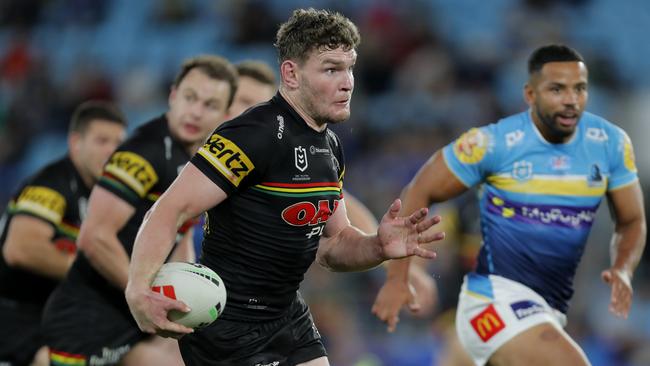
Before he was scoring for the Blues in State of Origin and hoisting premierships with Penrith, Martin was developing into a rugby league superstar in the Riverina with the Temora Dragons.
Picking up footy in under-6s with the club, Martin came through the ranks all the way to under-18s in the red and white.
Former coach Mark Hughes was able to watch Martin’s growth all the way through, with the Penrith star having played in the same team as son Grant for many years.
“He was always very energetic, way above most kids at that age,” Hughes said.
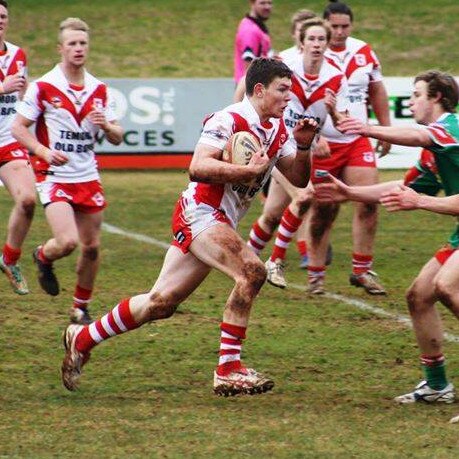
“We’d have him as a backrower like he is today, but you could put him anywhere in the backline and he’d do it justice.
“He was always very good on his feet, had a great build which made his tackling top notch.
“It’s great to see that Penrith have really honed in on his skills to make him even better.”
Hughes said Martin was a huge contributor to some of the club’s junior successes, which included premierships in under-15s and under-18s.
And when it came to his more senior years at the club, Martin would play for his regular under-18s team before backing up in first grade nearly every week.
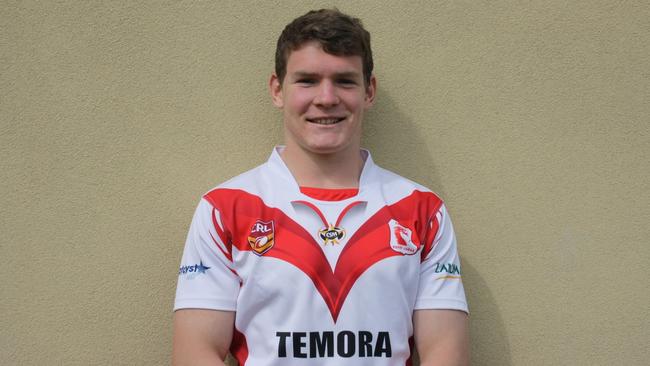
Hughes also highlighted how the unfortunate loss of Martin’s brother Jarred in 2015 seemed to drive him to be a better player.
“The year he passed, they had been looking forward to playing together in the Raiders system,” Hughes said.
“I think losing Jarred made him more focused and determined to succeed, it drives him that little bit more.”
Martin continues to make occasional appearance at the club these days, where he is always welcomed back with open arms and continually supported on the club’s social media channels.
“We’re a pretty unique bush junior footy club, over the years we’ve had 30+ juniors go to play in Sydney, with maybe 10 or so playing first grade,” Hughes said.
“It’s a great selling point for getting more juniors at the club having success stories like Liam.
“He’s going to be a Penrith, NSW and Australian stalwart for years to come.”
Dylan Edwards (Bellingen-Dorrigo Magpies)
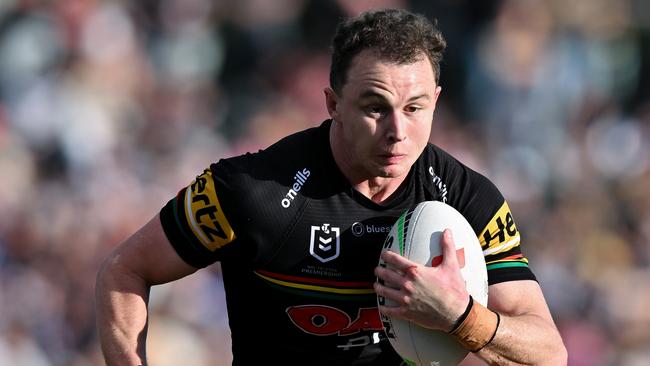
One of the most respected players in the competition, Dylan Edwards’ journey started a long way from the bright lights of Accor Stadium in the small town of Dorrigo in NSW’s Northern Tablelands.
After moving to the town from Albury as a six-year-old, Edwards quickly caught the attention of locals while turning out for the Bellingen-Dorrigo Magpies in the local Group 2 competition.
“He used to live a couple of doors down from me at one time, so I had a fair bit to do with him,” said longtime Magpies junior coach Phil Beaumont.
“It was just his dream from that age to play NRL. And it’s a dream come true. He just put all the hard work in.”
A gun five-eighth as a junior, Edwards was regularly called upon to step up an age group to fill the gaps in the teams Beaumont coached.
“He was a standout. It wasn’t a problem for him to jump an age group,” he said.
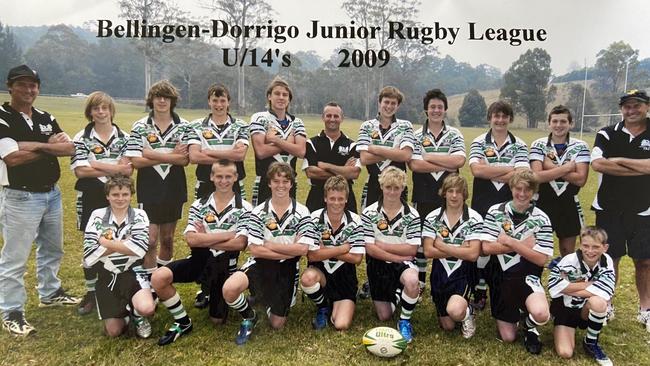
Widely admired for his commitment to training and for never cutting any corners, Beaumont says those hardworking traits were evident early on.
“Probably from about the age of 13 he used to do all the extras, he used to do boxing training and things like that.
“While the other kids dropped off he was really motivated. He had that drive from about 12 or 13. He knew he had to step it up a gear and that’s what he did.”
Another aspect of Edwards’ game is his toughness, something Beaumont believes his country upbringing helped instil in him.
“He’s done it tough, there’s been no silver spoon,” he said.
“In his first foray into senior footy he used to play under-18s for Bellingen and first grade later in the day, and the first grade side didn’t win a game all year, so he’s had a tough grounding.
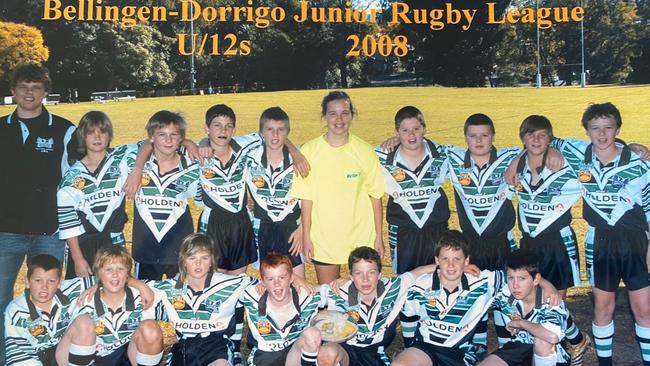
“It’s been to his betterment. It’s toughened him up. There’s no easy way out and that’s the way he plays on the football field.”
And now, with two premierships and a Clive Churchill Medal to his name, his former coach says it is almost a little surreal to see his former gun junior mixing it with the best.
“There’s such a low percentage that come through, there’s probably three per cent from under-20s to first grade, so it’s a tough gig to get there and it’s just a dream that he’s come this far,” said Beaumont.
“Dylan didn’t have it easy when he first went down there. The first season and a half/two seasons down there he didn’t set the world on fire at all at Penrith. He just stuck it out and as they say, ‘be the next man up’. He took his opportunity and here he is.”
Isaah Yeo (St John’s, Dubbo)
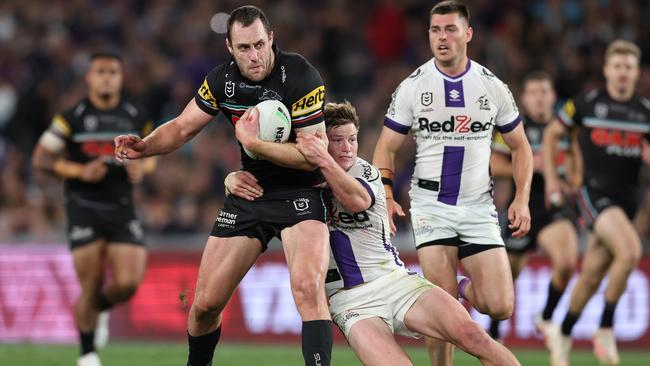
By now the Penrith captain is no stranger to the bright lights, with the 28-year-old gearing up for NRL grand final number four.
But before he was kitting up in Panthers, Blues and Kangaroos colours, Yeo was putting in the hard yards in the green and white of St John’s, Dubbo, a club he started playing for in under-11s.
The club has turned out to be quite the nursery for talent through the years, home to the likes of Bulldogs’ half Matt Burton, Wigan’s Kaide Ellis and Parramatta’s NRLW star Tameka Todhunter.
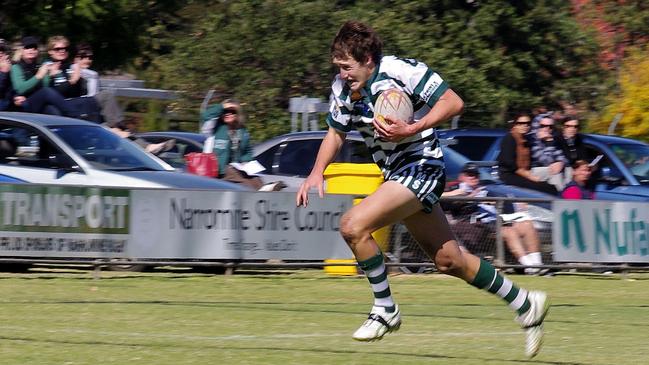
Coaching Yeo for six years at the club was Andy Haycock, who interestingly also coached Isaah’s father Justin, who himself played in four consecutive grand final winning sides from 2001-04.
“Isaah was always one of the better players, always in the rep teams growing up,” Haycock said.
“When he started in the Panther Academy program he really blossomed into the footballer we see today.
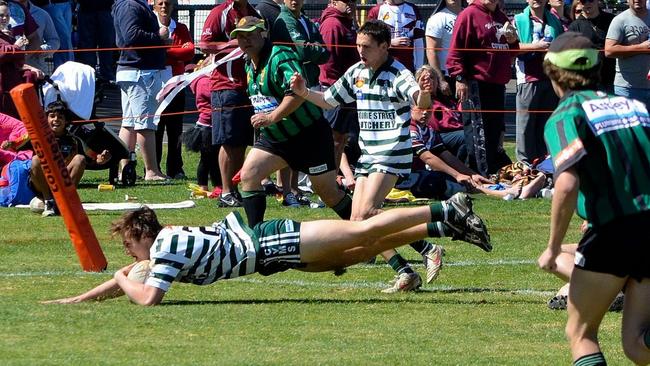
“He was able to embrace the grind and the expectation that comes with making his way through the professional ranks.”
Yeo was somewhat of a journeyman across the pitch in his younger days, not only playing a lot of five-eighth growing up, but lining up in the centres for Country rep sides and even on the wing for the Dubbo first grade side as an 18-year-old.
Haycock highlights how St John’s look back on Yeo not just as an export of incredible footy talent, but also terrific character, frequently used as a role model example in sessions with current players.
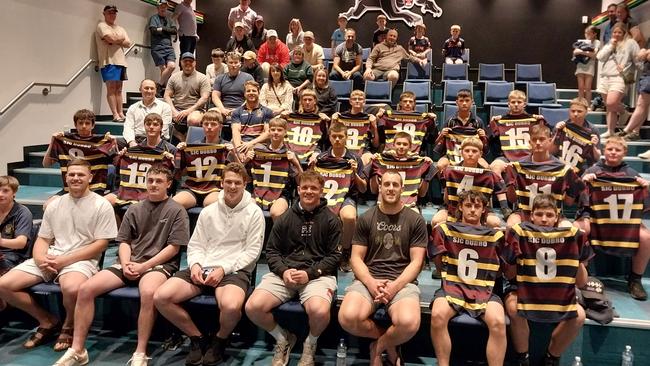
“We use the mantra ‘good people make good footballers’ … he’s always been the same, a great kid who has turned out to be one of the most respected players in the NRL,” Hancock said.
“Isaah has worked really hard both on and off the field to have his decade long career in the NRL.
“St John’s is always proud of its members who have gone on to bigger and better things.”
Kotoni Staggs (Wellington Cowboys)
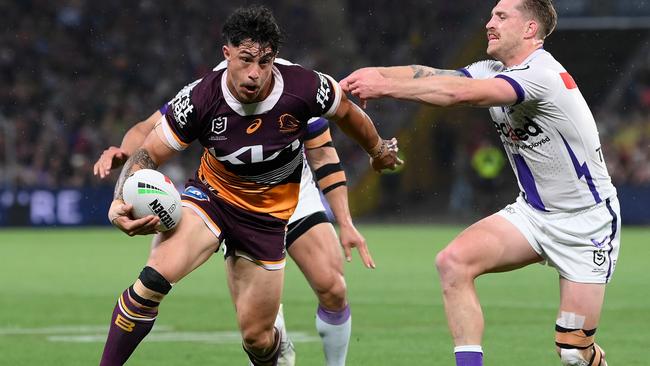
Before he was throwing stiff fends in Broncos colours, Staggs was donning a different shade of maroon with the Wellington Cowboys in NSW’s Central West.
Staggs played from the age of five all the way through to the under-18s at the club that looks back on him with admiration and pride.
Former junior president Graham Blackhall highlights how much the Wellington community continues to support the young centre despite now playing across the state border.
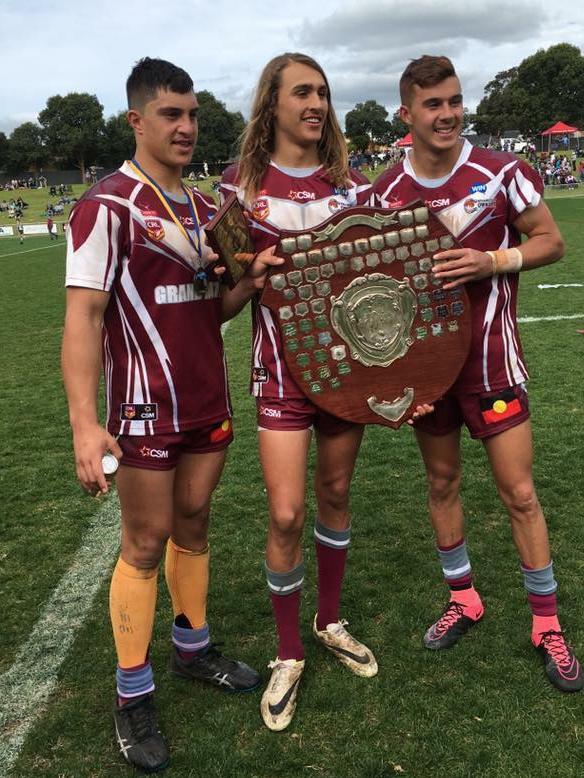
“He was the kind of kid who was afraid to let his team down, always giving more than 100 per cent,” Blackhall said.
“He would always rise to the challenge and give an honest and true expectation of himself.
“He’s a true gentlemen, he always acknowledged his elders and never thought he was better than anyone else.”
Blackhall remembers Staggs’ talent being widely recognised from a young age, bringing a great utility value to any side he played in and providing a real X-factor.
“He played a lot of fullback in the country reps system … he was a very strong and passionate returner of the footy from fullback, very tough to handle,” Blackhall said.
“When he got older and started getting himself into good shape he played a bit of lock forward as well, just to give him that right to roam.
“It was his attitude that set him apart though, you could give him a jersey with any number and he’d do a job.
Now 24 and one of the most destructive centres in the competition, Staggs is set to line up in his first NRL grand final, playing not only for Brisbane, but the entire Wellington community.
“We’re very proud to acknowledge him as a Wellington boy,” Blackhall said.
“He’s a committed family man, he’s done them really proud … he’ll have a great story to tell when all is said and done.
“Go get that ring Kotoni.”
Jack Cogger (Toukley Hawks)
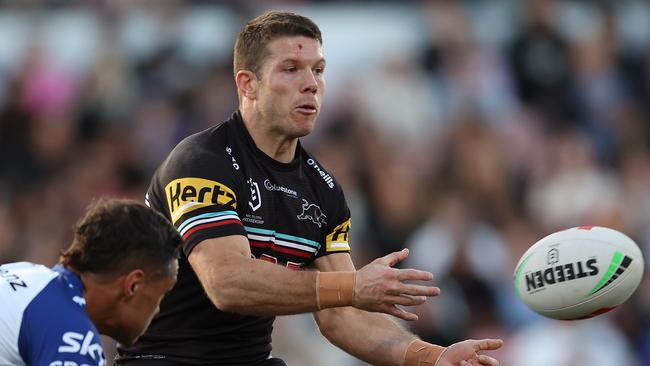
He might be eight seasons into his professional career, but there’s an argument to make that Jack Cogger has been the breakout star of those playing in this year’s grand final.
After spending time at Newcastle, the Bulldogs and Huddersfield, the half has proven to be an incredibly valuable asset for the Panthers this season, deputising for both Nathan Cleary and Jerome Luai at various stages as the pair were struck down with injury.
And while 12 months ago it might have been a shock to plenty of rugby league fans to see Cogger lining up in a grand final, for those who saw the 26-year-old grow up, they aren’t surprised at all.
“He was elite from a young age, he stood out from everyone else,” said Steve Gearside, who first came across Cogger as a six- or seven-year at the Toukley Hawks on the Central Coast.
“But it wasn’t just his ability, it was his willingness to help others. Even as a young junior he would lead all the runs then go back and help all the guys with less ability through the drills. He was always that kind of guy – a leader on and off the field.”
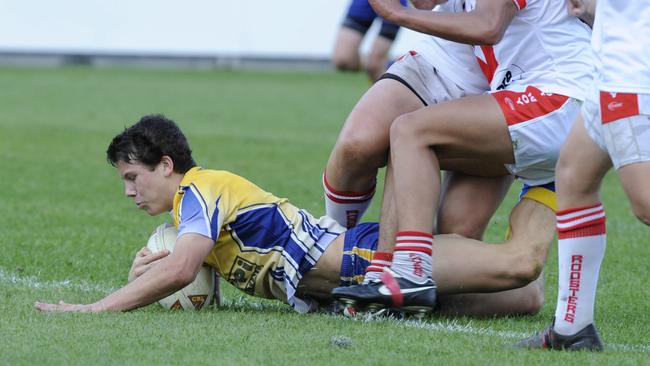
As Cogger’s trainer, assistant coach and then head coach all throughout his junior career, Gearside said the young gun – who played fullback in his early junior days – also had the motivation to make it in rugby league.
“His football was brilliant but it was just his attitude to training, his dedication to doing extras that set him apart. Even at a young age he’d do extras to prove himself.”
Held in incredibly high esteem by his junior club, each year the Hawks award the Jack Cogger Award to the young player with the most potential to make it in rugby league, with the Penrith half a regular figure in and around the club.
“During Covid he did a heap of videos off his own bat so young kids from the Toukley club could train themselves. He put drills on social media to help them out. We weren’t surprised that he went all the way,” said Gearside.
In joining Penrith and qualifying for the grand final, Cogger has also helped to reverse an unfortunate family trend.
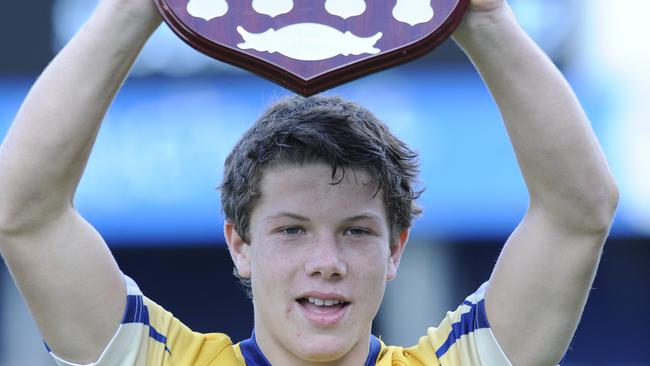
A tough halfback in his own right, Jack’s father Trevor won just 35 of his 161 top grade grades for Western Suburbs throughout the 1980s and early 1990s, at a winning percentage of just 22.
And while Jack had a similar record, having won just 24 per cent of his first 42 NRL games before joining the Panthers, things have certainly turned around in 2023.
“He had it tough as a young bloke at Newcastle behind a pretty beaten team, which as a young half makes it very hard,” said Gearside.
“Then he went to the Bulldogs and not much more success unfortunately. Then it was off to England to try his hand over there and had a moderate amount of success.
“But for him to get picked up to come home and then be with the Panthers, for all that to happen in the past 12 months, I couldn’t be happier for him.”
Luke Garner (Bilambil Jets)
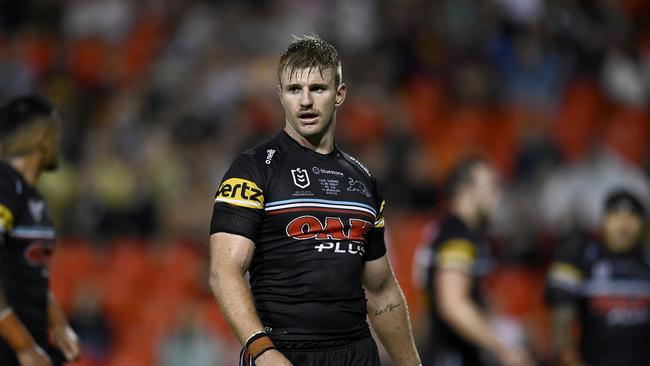
A rags to riches story if there ever was one, Garner could join a very exclusive club by becoming just the third player behind Brenko Lee and Englishman Harvey Howard to go from collecting the wooden spoon to winning a premiership in back-to-back seasons after joining Penrith from the Wests Tigers.
Growing up in the Tweed Shire as the oldest of three boys in a very sporty family, Garner played his junior football for local club the Bilambil Jets.
“He was a bit of a gentle giant coming through,” said longtime Jets junior coach Craig Rowles, who noted that it wasn’t immediately clear whether Garner would crack the big time.
“It wasn’t until he went to Palm Beach Currumbin (High School) that he fully understood in his own mind what he could potentially be,” he said.
“Lukey was probably above average at junior level but without being in the outstanding category. But you see that a lot with these kids coming through: they’re often just doing the hard work, working really well then all of a sudden something just sort of snaps in their brain and they realise, ‘I can do this’, and Luke’s a very good example of that.”
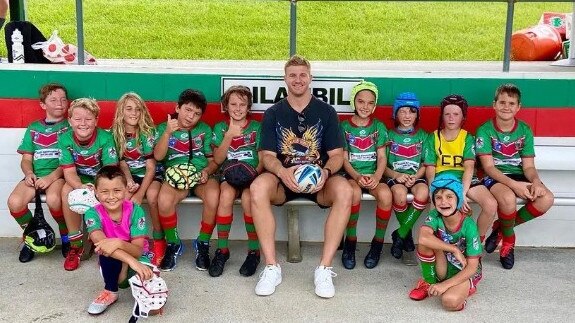
And while NRL fans now know Garner as a big backrower, Rowles says that wasn’t always the case growing up.
“When Manly first signed him (for under-20s) he was a winger. Everyone around him knew that he had the size and the ability: he could run good lines and was always very competitive,” he said.
“He always had a good training ethic, he always worked hard but once he decided in his own mind that he could do it, the rest was history.”
Indeed, while blessed with a 190-cm frame and plenty of natural athleticism, Rowles said that Garner’s drive was the thing that separated him from the pack.
“He had the determination where other kids fall away. Some kids have got the ability but they haven’t got the gumption to stay in the grind, whereas he stayed in there and has built himself a nice little NRL career thus far,” he said.
“I’m sure everyone at the Bilambil Jets will be cheering on the Panthers.”
Payne Haas (Woodberry Warriors)
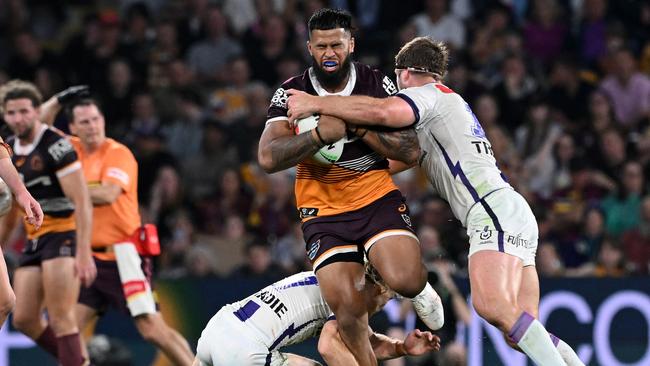
He might be the enforcer for the Broncos up in Queensland’s capital, but before becoming one of the most devastating prop forwards the NRL has ever seen, Payne Haas started out his footy days in the Hunter.
Haas played his junior league with the Woodberry Warriors in Newcastle, before moving to Queensland at the age of 13 to attend rugby league school Keebra Park State High.
From here the former Australian Schoolboy representative had a handful of NRL clubs fighting over his signature, and even some attention from the NFL, before eventually signing for the Broncos at 16.
Since then the journey has been eventful, from representing the Blues, Kangaroos and most recently being named as a prop forward in the Dally M team of the year for the second year in a row.
Despite only spending his early junior years at the Warriors, the club continues to throw their support towards Haas with every endeavour and accomplishment he adds to the resume.
“You epitomise what every child in our town can aspire to be who they want to be, if they work hard to achieve it,” the club posted to Facebook this year.



